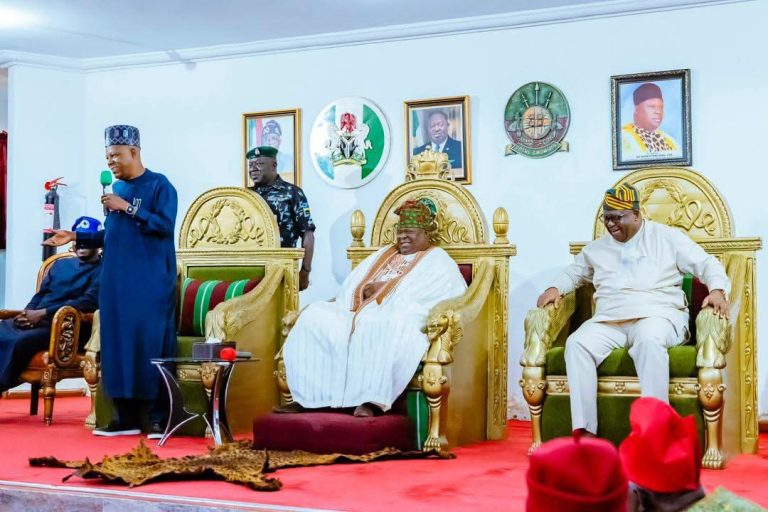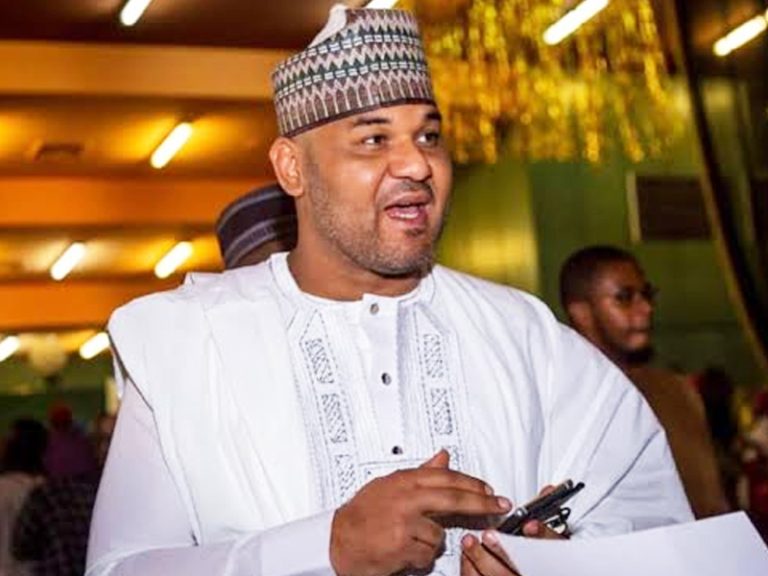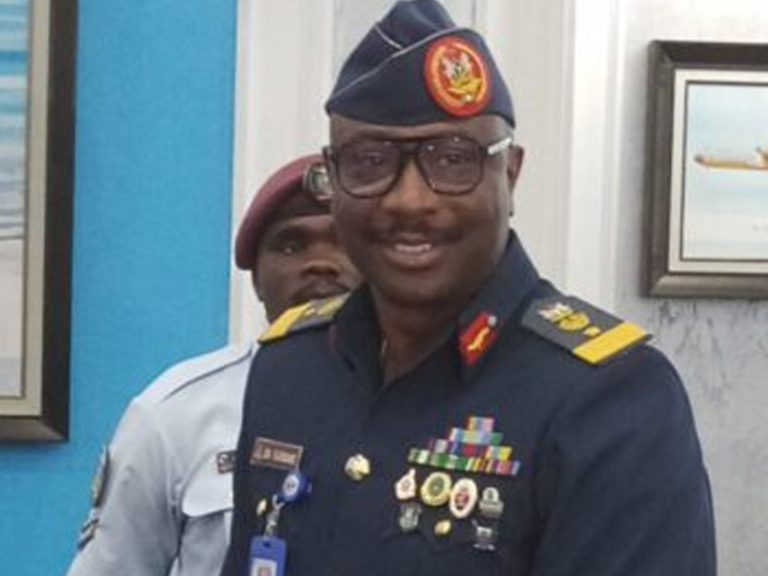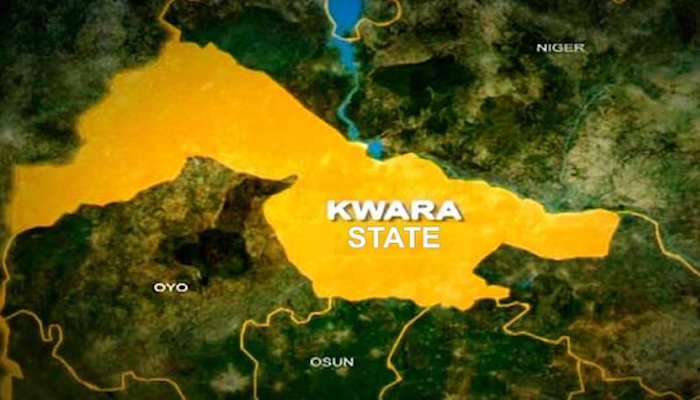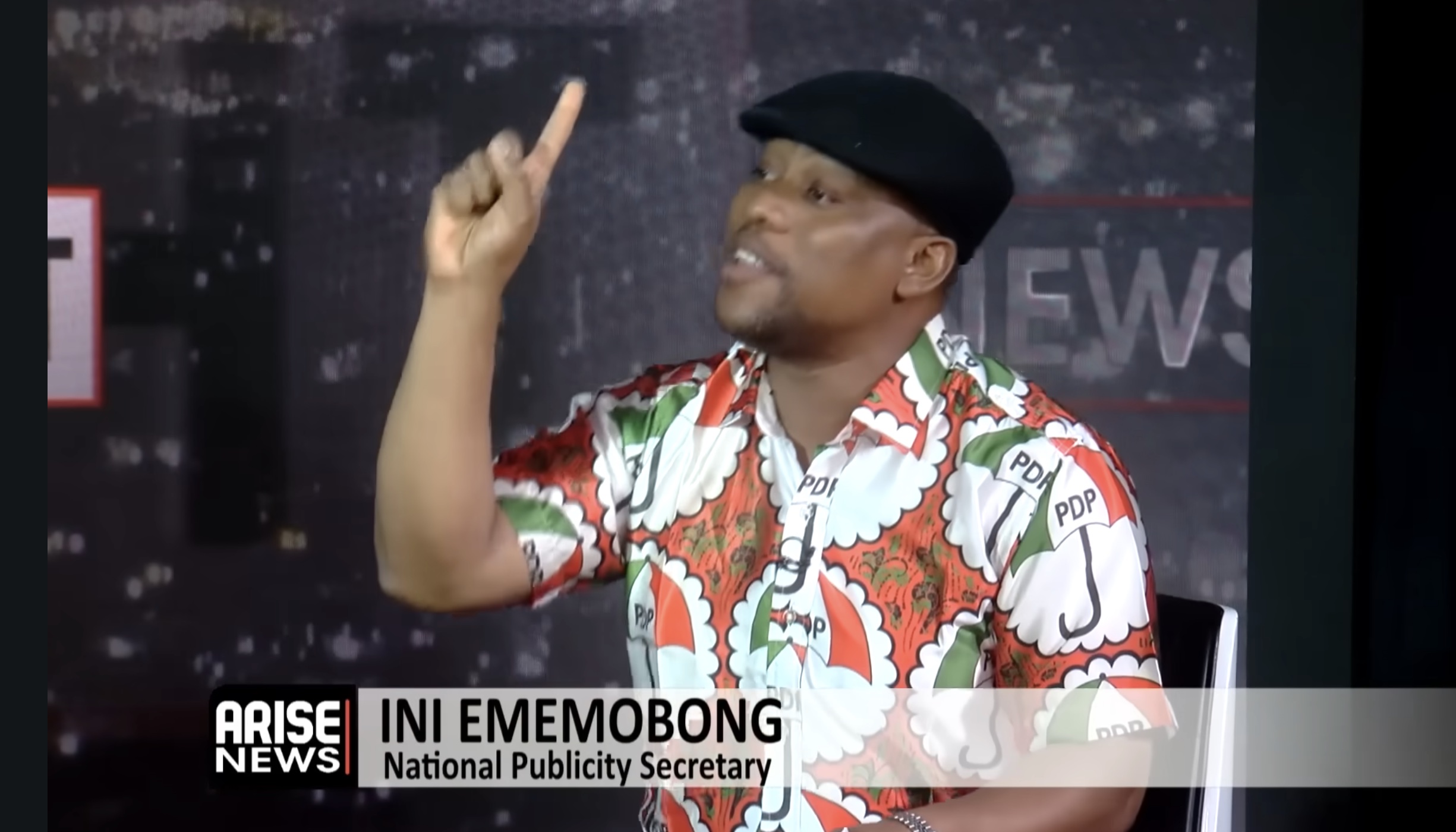
Screenshot

The National Publicity Secretary of the Peoples Democratic Party (PDP), Ini Ememobong, says the wave of suspensions and counter-expulsions rocking the opposition party is unconstitutional, insisting that only a properly convened national convention—not the NEC or the BOT—has the legal authority to discipline members.
Speaking during an interview with ARISE News on Tuesday, Ememobong defended the leadership produced by the controversial Ibadan convention, arguing that history and the party’s constitution validate the decisions taken there.
“The convention is the highest decision-making body of our party,” he said.
“Let my learned friend show me where in this constitution the NEC or the BOT has the capacity to discipline members. They can only make rules for discipline. Only a convention can discipline.”
He referenced the 2016 Port Harcourt convention to illustrate that the PDP’s supreme organ may take extraordinary decisions when the party faces legal paralysis.
“In 2016, when multiple court judgments made a convention impossible, the delegates created a caretaker committee—even though the constitution did not explicitly provide for it. The convention sat, took a decision, and the party followed it,” he explained.
“This constitution recognises the convention as the highest law. Once two-thirds of delegates are present, every bill or decision that passes there is binding.”
Ememobong rejected the characterisation of governors Seyi Makinde and Bala Mohammed as “gangsters,” following allegations that they led a forceful takeover of the Wadata Plaza secretariat.
“It is very unfortunate that you call governors—people who have suffered to keep this party—gangsters,”he said.
“We all went through the trenches together, faced the same battles, and kept this party afloat. Interests may differ, but we cannot disregard their sacrifices.”
He argued that those opposing the Ibadan convention have no constitutional backing for their actions.
“The secretary’s functions are subject to consultation with the chairman. Both of them signed the documents leading to the convention,” he said.
“Even the signpost at Wadata Plaza is evidence of the convention, and they never objected to any of the documents until midway, when interests shifted.”
Ememobong insisted that those challenging the convention were acting outside established rules, pointing to a recent communication from the electoral umpire.
“INEC replied to a letter they wrote asking for the Ekiti congress to be postponed. INEC confirmed it monitored the congress,”he said.
“That clearly shows what they are doing is illegal. They did not even write to INEC to notify them of their so-called NEC meeting.”
He dismissed claims that the acting chairman lacked authority to summon or preside over meetings, stressing that the suspension process itself was flawed.
“Assuming, but not conceding, that the chairman was not earlier suspended, who summoned the meeting where they purported to remove him?” he asked.
“The constitution says the secretary shall summon meetings on the chairman’s directive. The secretary cannot, on his own, summon a meeting to remove the chairman. It is delegated authority.”
Commenting on the chaos at the party headquarters earlier in the day—where journalists were attacked and police fired tear gas—Ememobong said the building was sealed based on misinformation from those he described as the “illegal faction.”
“This morning, a television station reported that my friend Nyamu said he invited the police to deal with intruders. He knew he lacked the power to do that,”he said.
“We simply informed the police that we were newly elected and would be holding our first NWC meeting. We did not ask them to lead us.”
He said PDP governors, senators and party stakeholders accompanying the new NWC were prevented from entering the secretariat.
“The police and non-state actors barricaded the place and refused entry to elected party leaders,”** he said.
“Even if we disagree, Governor Bala and Governor Makinde would never get into a fist fight with anyone. But when you bring elements in between, things go wrong.”
Ememobong dismissed claims that his faction has destabilised the PDP.
“How can he belong to a camp whose leader openly says he is supporting the president, when the whole essence of the PDP is to field candidates against that same president?” he asked.
“This constitution says we must present candidates for all offices. Their position contradicts the fundamental purpose of the party.”
He urged all factions to return to internal dispute resolution mechanisms.
“If democracy will fail or succeed, lawyers—whether as politicians, practitioners or judges—will determine it,” he said.
“We see the truth but choose to mask it. Courts should refer political leadership disputes to arbitration, where we can discuss interests instead of hiding under technicalities.”
Boluwatife Enome
